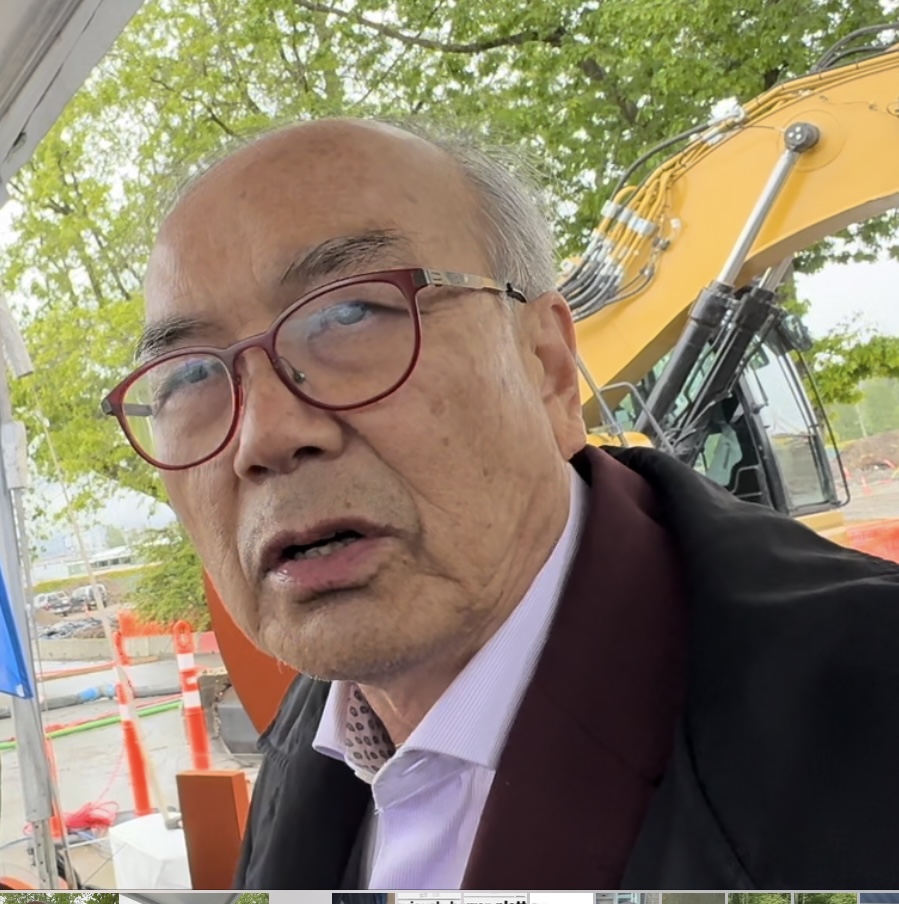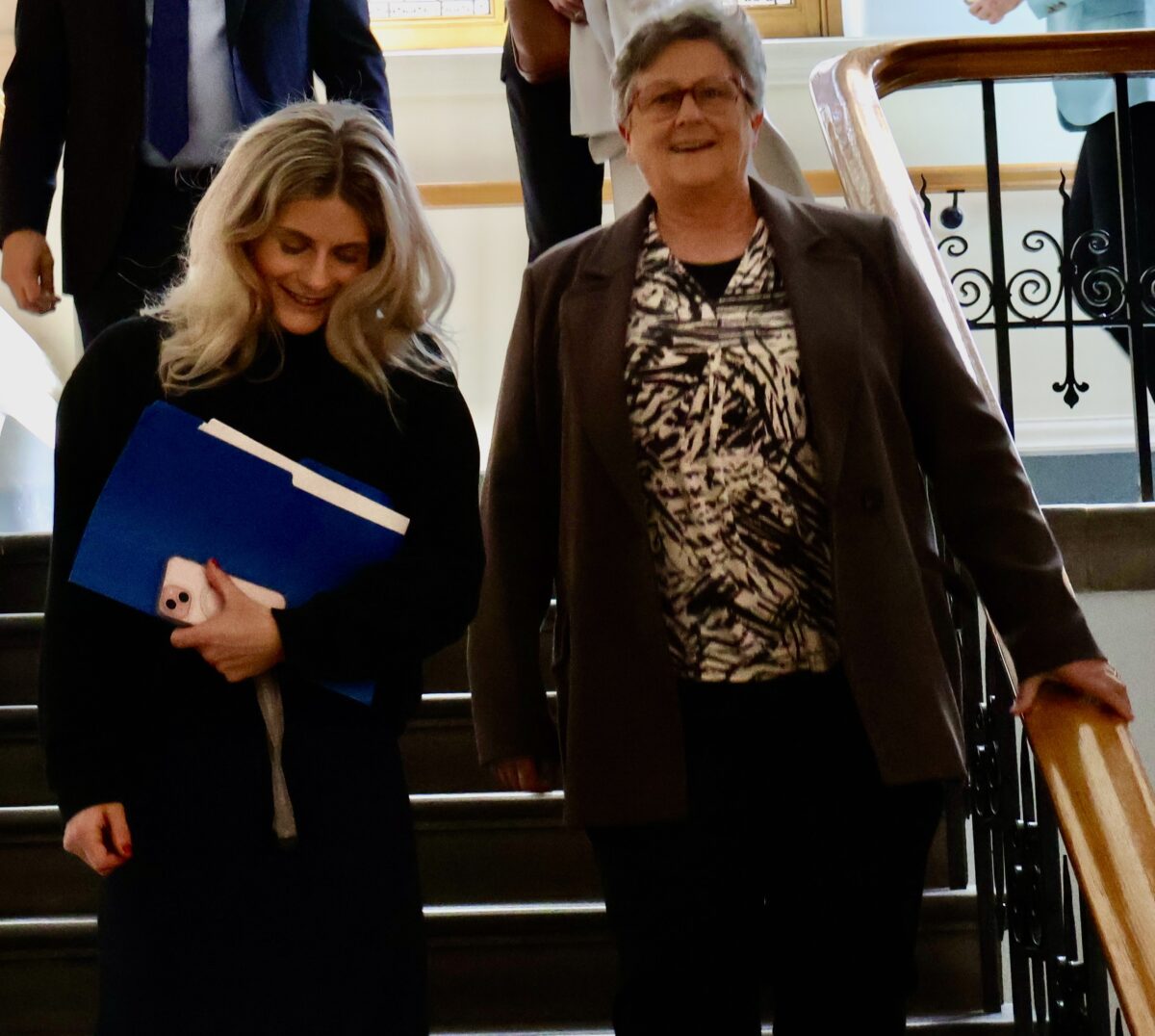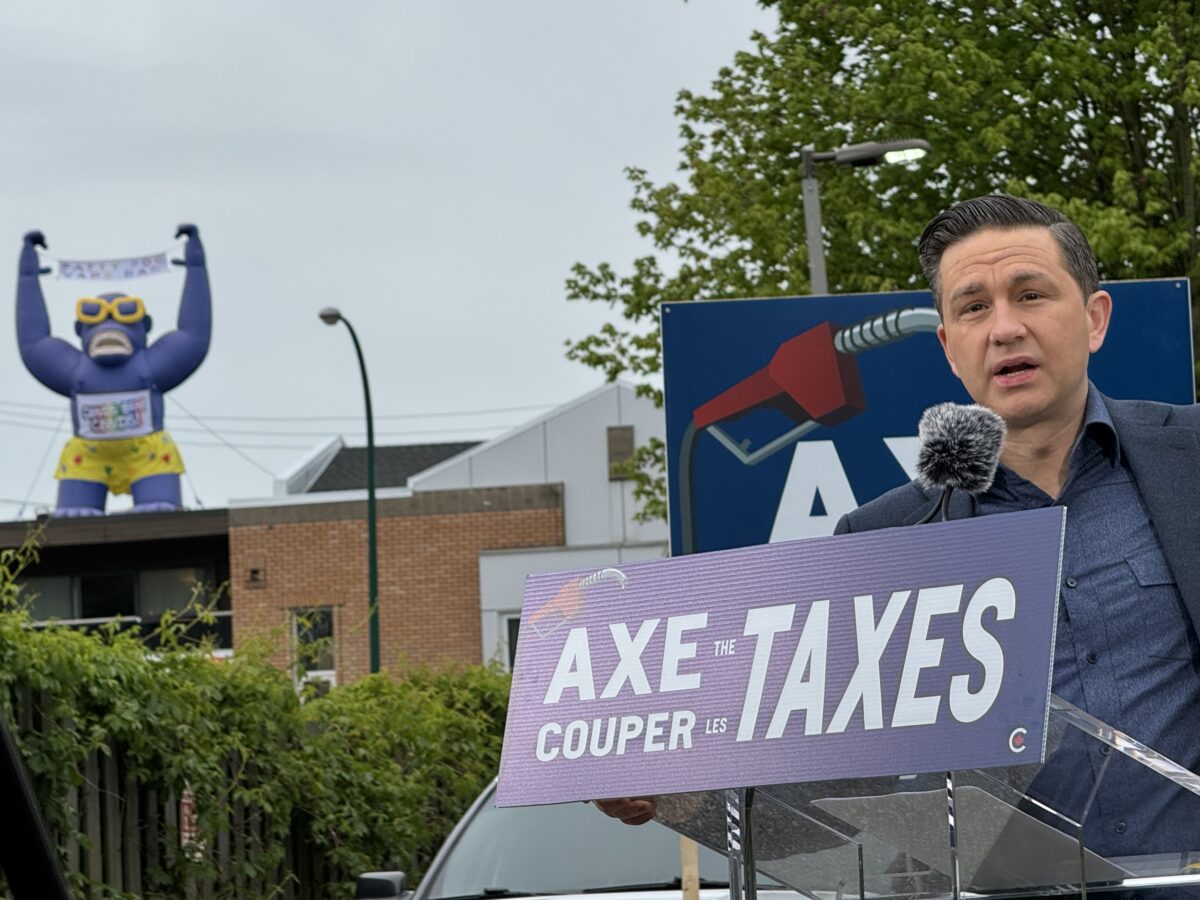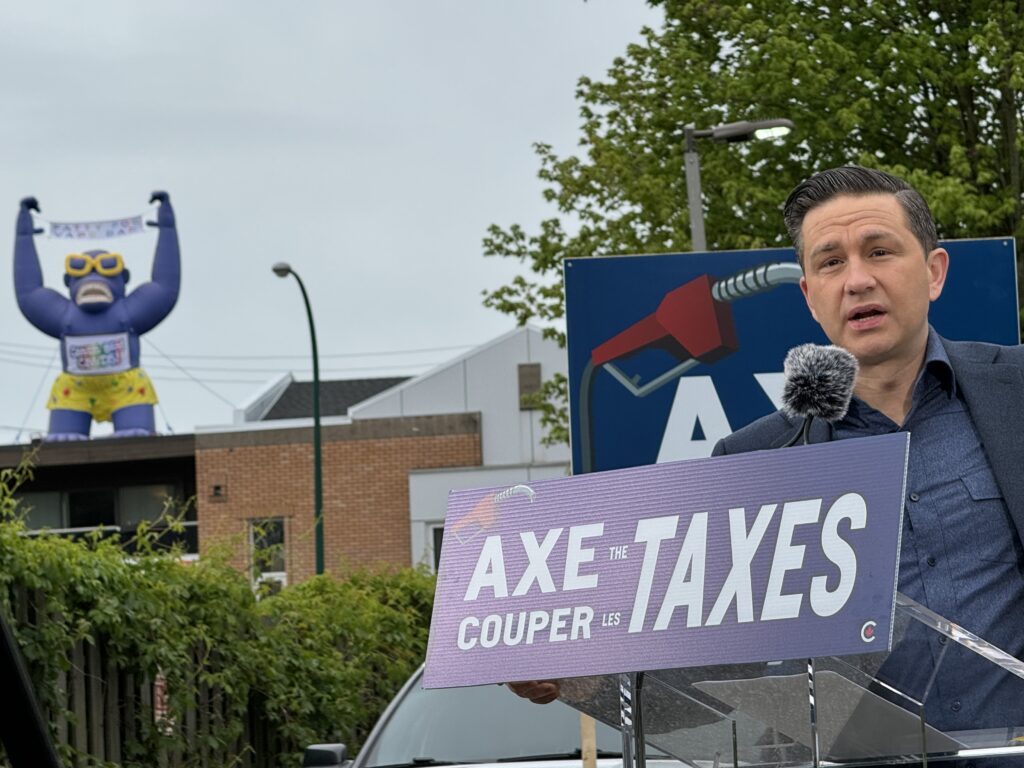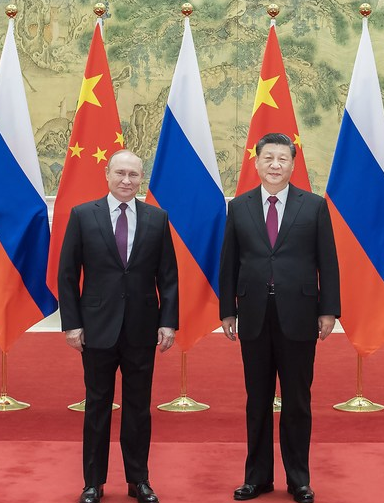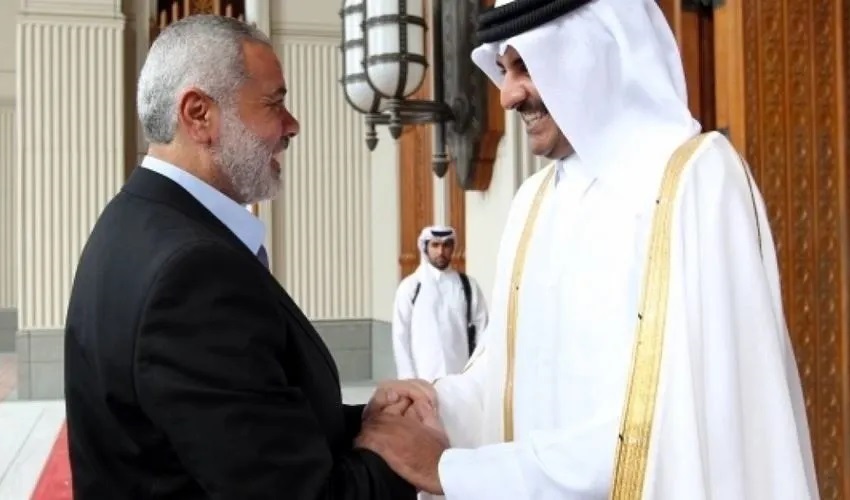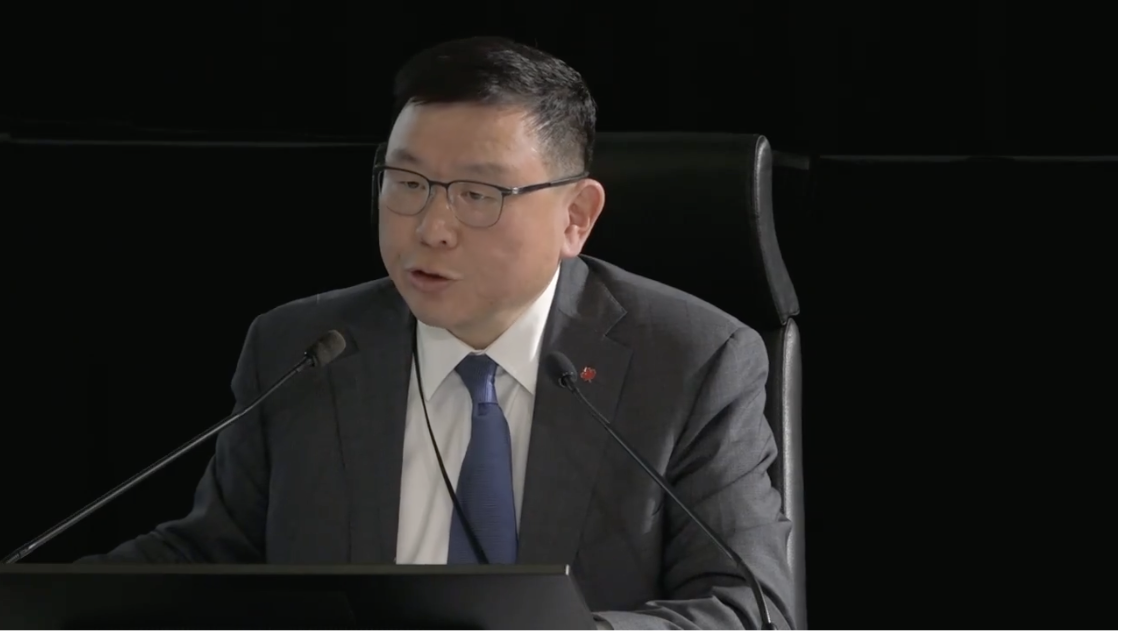B.C. NDP cybersecurity minister found at PNE
Bob Mackin
The NDP minister in charge of British Columbia government cybersecurity broke his silence May 24 on the cyberattack against government systems.
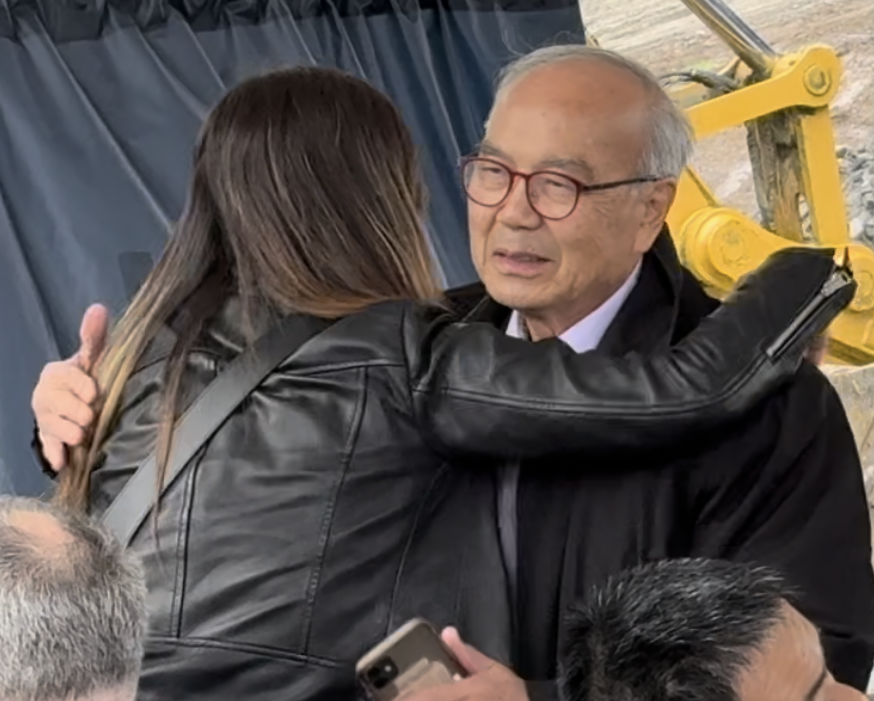
NDP minister George Chow embracing fellow MLA Katrina Chen on May 24 at the PNE (Mackin)
George Chow, the Minister of Citizens’ Services, was absent when Solicitor General Mike Farnworth took questions from reporters on May 10 about the incident by a state or state-sponsored actor from a country that was not specified.
Chow sat in the front row at the announcement of Freedom Mobile as the naming sponsor for the $104 million PNE Amphitheatre when it opens in 2026. A reporter asked Chow where he was when Farnworth appeared before reporters.
“I was doing my work in my constituency,” Chow said. “Why does that matter? I think we do have the cabinet member to answer the question. So I think that’s the most important thing.”
It is standard for all relevant cabinet ministers to be involved in a government announcement. For instance, on May 9, the ministers of emergency management, forests and water, land, resource stewardship teamed-up for a wildfire prevention news conference. The latter minister, Nathan Cullen, appeared by videoconference.
Chow’s Vancouver-Fraserview office is 11.2 kilometres from the Vancouver cabinet office in the Canada Place complex. Chow’s office is also 3.1 kilometres south of Nanaimo SkyTrain station, which would have taken Chow to Canada Place in 15 minutes.
None of the reporters chosen May 10 to ask Farnworth a question inquired about Chow’s whereabouts and Chow’s communications staff did not explain why he was absent.
Asked why Farnworth took the lead, Chow said “he’s the deputy [premier] and the question came to the premier in the beginning, we work as a team.”
Chow was also asked if China was the source of the cyberattack.
“That, I don’t have no information,” he said. “Our office is working with the Canadian Centre for Cyber Security, I think they’re still investigating. And we don’t have any more information that is actually said to the media by the deputy premier and the premier.”
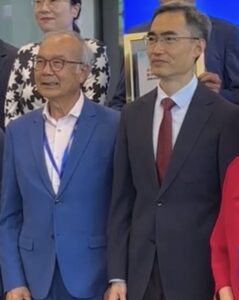
George Chow stands with Xi Jinping’s top B.C. diplomat Yang Shu in September 2023 in Richmond’s Lipont Place on a Chinese TV network report. (Phoenix TV)
Otherwise, Chow called the situation “under control” and said all data is secure. He had no comment on the recent ransomware attacks on the London Drugs chain and the First Nations Health Authority.
Premier David Eby disclosed in a May 8 statement that “sophisticated cybersecurity incidents” had occurred. Two days later, Eby’s deputy minister, Shannon Salter, said there were three attempts, beginning April 10, to breach the government system. The attack prompted a government-wide memo on April 29 ordering workers to change their passwords from 10 characters to 14.
The government reported the incidents to the Canadian Centre for Cyber Security, RCMP, Microsoft Detection and Response Team and the Office of the Information and Privacy Commissioner.
The 2023 Canadian Security Intelligence Service public report said China, Russia, Iran and India are “major perpetrators of foreign interference and espionage in Canada.”
“Foreign states engage in a variety of hostile activities such as elicitation, cultivation, coercion, illicit financing, malicious cyber activities, and information manipulation to interfere in Canada,” the CSIS report said.
Malicious cyber techniques include compromising electronic devices through various means including socially engineered emails, ransomware, and malware. Farnworth did not specify the attacker’s method, but denied it was ransomware.
Chow became Minister of Citizens’ Services in February. He was previously the Minister of State for International Trade under Premier John Horgan. When Eby replaced Horgan in November 2022, Jagrup Brar replaced Chow in the junior portfolio.
China-born Chow is a former president of the pro-Beijing Chinese Benevolent Association of Vancouver. He served two terms on the Vision Vancouver city council majority from 2005 to 2011, when the mayor was pro-Beijing environmentalist Gregor Robertson. Chow is in his second and final term as an NDP MLA.
Support theBreaker.news for as low as $2 a month on Patreon. Find out how. Click here.
Bob Mackin The NDP minister in charge of






